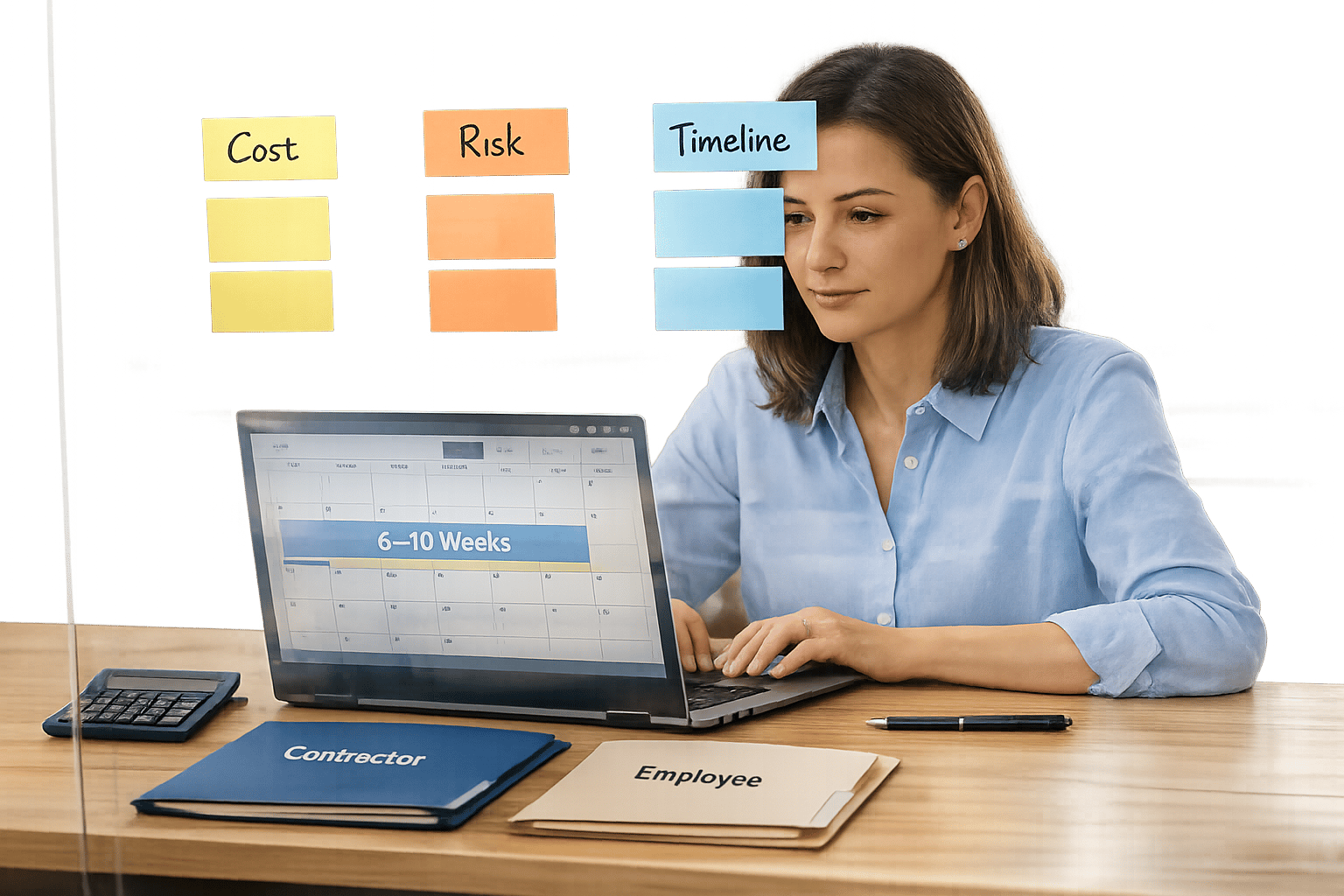What is Remote Project Management?

Project management is the backbone of any successful business endeavor. It involves planning, executing, and overseeing projects to ensure they are completed on time, within budget, and to the required quality standards. Traditional project management usually involves in-person meetings, physical office spaces, and direct supervision. However, the rise of digital technologies and the global shift towards remote work have given birth to a new paradigm: remote project management.
Remote project management is the practice of managing projects with team members distributed across various locations, often globally. This approach leverages digital tools and communication technologies to coordinate efforts, track progress, and achieve project goals without the need for physical proximity. It’s a flexible, modern solution that aligns with the evolving dynamics of the workplace.
Understanding remote project management is crucial in today's business environment. As organizations increasingly adopt remote work models, mastering remote project management becomes a key driver of productivity and success. It enables businesses to tap into a global talent pool, reduce operational costs, and offer employees greater flexibility. By embracing remote project management, companies can stay competitive, agile, and ready to meet the demands of the digital age.
Definition of Remote Project Management
Remote project management involves leading and coordinating projects with team members spread across various locations. It relies on digital tools to keep everyone on track and working together smoothly, regardless of where they are. This approach allows for greater flexibility and access to a wider talent pool, as team members can work from anywhere.
Unlike traditional project management, which typically requires everyone to be in the same office, remote project management embraces location flexibility. Instead of face-to-face meetings, communication happens via video calls, emails, and chat apps. Physical documents and in-person brainstorming sessions are replaced by online collaboration tools like Google Workspace, Microsoft Teams, and project management platforms such as Trello or Asana.
Benefits of Remote Project Management
Remote project management offers amazing flexibility, which greatly improves work-life balance. When employees can work from anywhere, they can better juggle their work and personal lives. No more long commutes or rigid schedules. This freedom means they can be more productive and happier in their roles, leading to higher job satisfaction.
Another big advantage is access to a global talent pool. You’re no longer limited to hiring people who live nearby. With remote project management, you can find the best talent from anywhere in the world. This not only brings diverse perspectives and innovative ideas but also ensures you have the right skills for the job.
Cost savings are also a huge benefit. Without the need for a physical office, you save on rent, utilities, and office supplies. These savings can be redirected to other important areas like technology upgrades, employee training, or marketing efforts.
Lastly, remote project management often boosts productivity and job satisfaction. Employees tend to work better in environments they can control and feel more trusted and autonomous. Studies show that remote workers are often more productive and engaged, contributing to a positive and efficient work culture.
Best Practices for Remote Project Management
Clear communication and regular updates are essential for successful remote project management. Establish consistent channels for communication, such as daily check-ins, weekly team meetings, and real-time messaging apps like Slack. Regular updates keep everyone on the same page and help quickly address any issues or changes in the project.
Setting realistic deadlines and goals is crucial. Break down larger tasks into manageable chunks and set achievable milestones. This helps keep the team motivated and ensures steady progress. Use project management tools like Trello or Asana to assign tasks and monitor deadlines.
Encouraging team collaboration and engagement is key to maintaining a cohesive remote team. Foster a sense of community by organizing virtual team-building activities and encouraging open dialogue. Collaboration tools like Google Workspace and Microsoft Teams can facilitate seamless teamwork and idea sharing.
Implementing effective project management methodologies, such as Agile or Scrum, can greatly enhance productivity and adaptability. These methodologies provide structured frameworks that help manage tasks, streamline workflows, and improve responsiveness to changes. Regular sprint reviews and retrospectives in Agile or Scrum practices ensure continuous improvement and keep the team focused on their goals.
The Role of a Remote Project Manager
A remote project manager plays a pivotal role in ensuring that projects run smoothly and successfully, even when team members are spread across different locations.
Key Responsibilities and Skills Needed
The key responsibilities of a remote project manager include planning and organizing projects, setting timelines, allocating resources, and monitoring progress. They must ensure clear and consistent communication, manage risks, and resolve issues promptly. Essential skills include strong leadership, excellent communication, and proficiency with digital project management tools. Time management, problem-solving, and the ability to motivate and engage remote teams are also critical.
How to Lead a Remote Team Effectively
To lead a remote team effectively, a project manager must establish clear goals and expectations from the outset. Regular check-ins and updates are vital to keep everyone aligned and informed. Utilizing collaborative tools like Slack for communication, Trello for task management, and Zoom for virtual meetings helps maintain a cohesive and productive team environment. Building trust and fostering a sense of community through virtual team-building activities can also enhance team spirit and collaboration.
Importance of Adaptability and Continuous Learning
Adaptability is crucial for a remote project manager. The remote work landscape is constantly evolving, and being able to adjust to new tools, technologies, and methodologies is essential. Continuous learning helps a project manager stay ahead of industry trends and best practices. Encouraging team members to engage in ongoing professional development also ensures that the team remains innovative and competitive. By being adaptable and committed to learning, a remote project manager can effectively navigate challenges and drive project success.
Future Trends in Remote Project Management
Remote project management will increasingly rely on AI and automation tools. These technologies can streamline workflows, automate repetitive tasks, and provide valuable insights. AI can help predict project risks, optimize resources, and improve efficiency. Automation tools can handle routine tasks, freeing up project managers and teams to focus on strategic and creative work. This shift will allow teams to work smarter, not harder, and will lead to more efficient project outcomes.
With more people working remotely, there will be a greater focus on mental health and well-being. Companies are realizing that supporting employees' mental health is key to maintaining productivity and satisfaction. Future trends may include more mental health programs, regular check-ins, and resources for stress management. Remote project managers will need to create a supportive environment, encourage work-life balance, and ensure team members feel valued and connected. This focus on well-being will help prevent burnout and keep teams motivated.
The pandemic has permanently changed how we view remote work. Going forward, remote work policies will continue to evolve. Flexible work arrangements, hybrid work models, and comprehensive remote work policies will become the norm. These policies will cover aspects like cybersecurity, communication protocols, and performance metrics. Companies will need to adapt to these changes to stay competitive and attract top talent. By being flexible and responsive to these new norms, businesses can better support their remote teams.
Embracing AI and automation, prioritizing mental health, and evolving remote work policies will help remote project managers lead their teams effectively in the changing work environment.
Final Thoughts
Remote project management is crucial in today’s business landscape. It offers flexibility, access to a global talent pool, cost savings, and improved productivity and job satisfaction. By embracing the best practices and staying updated with future trends like AI, mental health focus, and evolving work policies, businesses can effectively manage remote teams and drive successful project outcomes.
If you're looking to enhance your remote project management capabilities, consider hiring skilled remote project managers through RemotelyTalents. Our platform connects you with top talent to lead your projects effectively. Explore our services and find the right project manager for your team here.
Read also
Ready to get started?
If you want to dive into the details just Book a Free Consultation with our staff and we’ll be happy to answer your questions.

.png)



